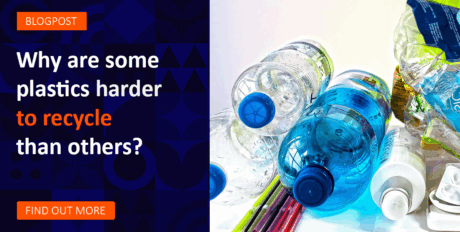Contact us today for your Free Quote
Creating a sustainable workplace is not just about reducing environmental impact – it’s also about building a culture that values long-term ecological health and social responsibility. Here are 50 ways that you can be more sustainable at work.
Reduce, Reuse, Repurpose | Energy Efficiency | Conscious Consumption | Green Commute | Water Conservation | Beyond the Basics | Spreading Sustainability | The Power of Advocacy | Individual Actions
Minimising waste by finding new ways to use old items and cutting down on what we consume.
- Go Paperless – Embrace digital alternatives to paper in your communications, billing, and documentation to minimise waste.
- Use Recycled Paper – When printing is necessary, opt for 100% post-consumer waste recycled paper, as the creation of recycled paper uses 31% less energy compared to manufacturing paper from virgin fibre.
- Set Printers to Double-Sided – Save paper by setting office printers to default to double-sided printing.
- Recycle Everything Possible – Set up clearly labelled recycling bins for paper, plastics, metals, and glass to make recycling easy and accessible.
- Encourage a Sustainable Kitchen – Replace disposable kitchen supplies with reusable dishes, utensils, and napkins; Invest in reusable mugs, embrace reusable straws.
- Repurpose Old Electronics – Donate or recycle used electronics instead of throwing them away. E-waste constitutes 70% of our toxic waste, yet only 12.5% is recycled, with 85% ending up in landfills or incinerators, releasing harmful toxins into the air.
At Bywaters we are able to recycle your WEEE waste and repurpose your old furniture. We have many partners to support in this aspect.

Improving energy efficiency in the workplace can have a strong, positive impact on your sustainability credentials.
- Reduce Energy Use – Turn off lights, computers, printers, and other equipment when not in use. In 2023, UK energy production fell by 9% to its lowest point since record-keeping started in 1948, marking a 36% decrease from 2010 levels and a significant 66% drop from its peak in 1999.
- Switch to LED Lighting – Replace incandescent bulbs with energy-efficient LED bulbs to reduce energy consumption. Replacing a 50W halogen spotlight with a 5W LED reduces energy use by 90% and cuts CO2 production, while the longer lifespan of LED bulbs decreases waste and energy required for manufacturing, and unlike conventional bulbs, LEDs contain no hazardous chemicals like toxic mercury.
- Install Smart Thermostats – Use smart thermostats to optimise heating and cooling efficiency.
- Energy-Saving Appliances – Encourage the use of energy-efficient appliances in break rooms, kitchens and other common areas.
- Laptop Power Management – Educate staff about power-saving settings on laptops to reduce energy consumption.
- Implement Energy Audits – Regularly conduct energy audits to identify ways to improve energy efficiency.
- Use Natural Light – Design workspace layouts to maximise the use of natural daylight.
- Use Motion Sensors – Install motion sensors in infrequently used areas to control lighting based on occupancy.
At Bywaters, we have 4000 solar panels to help power our operations. We utilise our solar panels to not only power our building facilities but also to power our electric vehicles.

Making smarter choices about the products and services we use every day is key lessen our environmental impact. That being said, we listed a few useful ways for businesses to be more resource-friendly in the office.
- Eco-Friendly Office Supplies – Purchase office supplies made from recycled materials or certified by environmental standards.
- Green Cleaning Products – Switch to eco-friendly cleaning supplies for maintaining the office.
- Reusable Water Bottles – Reduce plastic waste by providing filtered water dispensers and encouraging reusable bottles. Approximately 80% of the world’s plastic bottles are discarded in landfills, where they contribute to health issues in both marine species and humans.
- Minimise Water Usage – Install low-flow faucets and toilets to reduce water consumption. Bare in mind that only 0.5% of Earth’s water is drinkable, so it’s crucial to conserve water wherever possible.
- Think Before You Print – Encourage a paperless culture by promoting screen sharing and digital communication.
Bywaters champions to conscious consumption by advising businesses on sustainable waste management practices. Our dedicated Sustainability Team is committed to consult clients with long-term waste management strategies to advance their environmental sustainability.

Adopting sustainable commuting methods can help reduce the carbon footprint of any team. Here are a few ideas to promote your business’s green commute programme.
- Promote Remote Work – Reduce commute-related carbon emissions by supporting telecommuting. Working remotely has the potential to cut annual carbon emissions by 54 million tons.
- Initiate Carpool Programs – Encourage carpooling among employees to decrease individual vehicle use.
- Support Public Transit – Offer subsidies or discounts for public transit passes to encourage more sustainable commute options.
- Install Bike Racks – Make it easy for employees to bike to work by providing secure bike storage.
Taking steps to use less water and promote careful management of this vital resource has its perks. Below there are a few ways this can be done.
- Fix Leaky Faucets – Report leaky faucets promptly to maintenance to prevent water waste.
- Shorter Showers – If applicable, encouraging colleagues to take shorter showers in company locker rooms can benefit the environment.
- Full Dishwasher Loads – Only run the dishwasher when it’s full for maximum water efficiency.
- Water-Saving Landscaping – Plant water-efficient plants in office gardens and common areas.
- Collect Rainwater – Explore rainwater harvesting solutions for watering plants or flushing toilets (depending on local regulations).
Bywaters harvest rainwater from the roof of our recycling centre. Water is stored in a 10,000 litre tank and is utilised to wash our bins and vehicles.

Explore advanced and innovative sustainability initiatives that push the boundaries of standard practices.
- Arrange for Electronic Waste Recycling – Ensure proper disposal of old electronics through e-waste recycling programs. Each year, we generate over six kilograms of e-waste per person globally, yet only about 17% is recycled, leaving nearly 350 million tonnes of e-waste unrecycled on Earth.
- Invest in Quality Equipment – Buy high-quality, durable office equipment that won’t need frequent replacement.
- Monitor Utility Bills – Keep track of energy and water bills to spot trends and areas for improvement.
- Plan Sustainable Corporate Events – Organise company events that adhere to sustainable practices.
- Audit Company Supply Chain – Review your supply chain for sustainability and seek improvements.
- Celebrate Sustainability Successes – Recognise and reward employees and teams that excel in implementing sustainable practices.
- Select Sustainable Furniture – Opt for furniture made from recycled or sustainable materials. Eco-friendly furniture is characterised by its low environmental impact and the adoption of ethical manufacturing practices.
- Centralise Waste Management – Eliminate individual under-desk bins and set up centralised recycling and waste stations.
At Bywaters, we are dedicated to pioneering advanced sustainability initiatives. Our AI-powered Nando seamlessly sorts and processes waste more efficiently, highlight our commitment to going beyond basic recycling efforts. Click here to find out more.

The key to imparting sustainable practices is making information available. Educate and inspire staff about the benefits and practices of sustainability.
- Green Office Challenge – Organise fun competitions amongst departments to track and promote sustainable practices.
- Sustainability Workshops – Host educational workshops to inform colleagues about eco-friendly initiatives.
- Partner with Green Businesses – Prioritise partnerships with vendors committed to sustainable practices. This isn’t just to appeal to clients, but to improve culture. Studies show that green initiatives have a positive impact on firm performance.
- Celebrate Sustainability Successes – Recognise and reward employees and teams that excel in implementing sustainable practices. According to McKinsey & Company, generous and specific financial incentives can help drive and sustain a rapid performance improvement.
At Bywaters, we offer our clients waste awareness days and beach cleans, to provide a fun and educational way to learn about sustainability.

The power of advocacy is crucial to trickle into further positive influence. See how using your corporate voice to promote environmental sustainability in the community and beyond.
- Sustainable Office Policies – Advocate for company policies that promote sustainability, such as telecommuting or reduced paper usage.
- Green Procurement Guidelines – Support the implementation of green procurement guidelines to prioritise sustainable suppliers.
- Sustainable Investment Initiatives – Encourage the company to explore environmentally responsible investment opportunities.
- Corporate Social Responsibility – Participate in volunteer opportunities or green initiatives organised by the company.
- Sustainability Teams (Green Teams) – Join or form a sustainability team to spearhead sustainability initiatives within the office.
At Bywaters we produce multiple report a year that has been published on national media like evening standard, city am and green news. You can view our reports in our resource section of our website.

Lifestyle changes can have a huge impact on your carbon footprint. Here are some key ways to highlight how personal choices and actions contribute significantly to our collective sustainability goals.
- Meatless Mondays – Encourage colleagues to participate in a “Meatless Monday” initiative to reduce the environmental impact of meat consumption. Celebrate sustainability days like Meatless Mondays and Veganuary.
- Second-Hand Shopping – Organise swap meets or promote second-hand clothing exchanges within the office.
- Eco-Friendly Breaks – Pack lunches with reusable containers and utilise reusable coffee filters.
- Plant-Based Options – Advocate for incorporating plant-based options in office cafeterias or vending machines.
- Spread the Word – Share your knowledge about workplace sustainability with friends and family, inspiring wider change.
Bywaters commitment to Recycling
At Bywaters, we lead the way in sustainable waste management. Our operations’ commitment to environmental excellence ensures eco-friendly recycling processes that significantly reduce ecological impact. Discover our innovative approach and learn more about our recycling capabilities on our Recyclopedia.
More posts:
Valentine’s Day: History, Tradition, and Its Modern Impact
This post traces the evolution of Valentine’s Day from ancient Roman rituals to a global commercial event. It highlights the holiday’s hidden environmental impact and offers a guide to celebrating sustainably through “Circular Romance” and waste reduction.
Read morePlastic Recycling: Why Are Some Types Harder to Process Than Others?
Some plastics recycle easily, while others are difficult or impractical to process at scale. This article explains why material type, packaging design, contamination and recycling infrastructure all play a role, and what businesses can do to improve plastic recycling outcomes in the UK.
Read moreThe Ultimate Guide For a Sustainable School and University
Download The Ultimate Guide For a Sustainable School or University. Get the roadmap to cut costs, reduce your carbon footprint, and boost your ESG profile with 5 core pillars.
Read more






